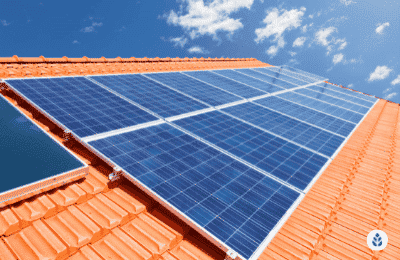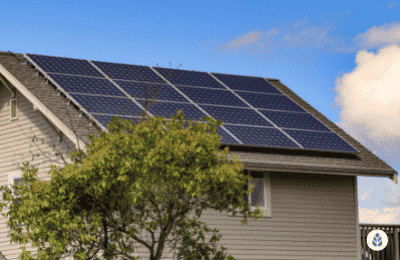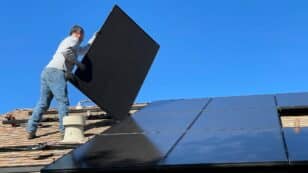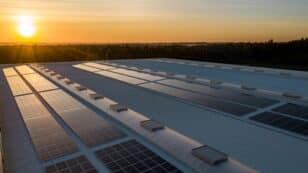 Reviews
Reviews
Top 4 Best Solar Companies in Louisiana (2024 Reviews)
In this guide to choosing a reliable solar installer in Louisiana, you’ll learn:
- What are the top solar companies in Louisiana?
- Are there solar incentives in Louisiana that can bring down the cost of converting to renewable energy?
- Is it possible and beneficial to do a DIY solar installation in Louisiana?
Each product and or company featured here has been independently selected by the writer. You can learn more about our review methodology here. If you make a purchase using the links included, we may earn commission.
What Are Louisiana’s Top 4 Solar Companies?
According to data available from the Solar Energy Industries Association (SEIA), there are around 35 unique companies that install solar equipment throughout Louisiana.1 While having a myriad of company options is always a positive thing, it also means that choosing the best one for your solar project involves a lot of research.
Luckily for you, we’ve done the heavy lifting for you and have ranked the top solar providers in Louisiana. These include:
- Solar Alternatives: Solar Veteran
- ADT Solar: Best Warranty Coverage
- South Coast Solar: Outstanding Regional Installer
- Phoenix Exteriors: Outstanding Regional Installer
You can use the drop-down menus below to get more information on each of these installers and see which will work best for your purposes.

Solar Alternatives

Regional Service
Average cost
Pros
- Great warranty coverage
- Outstanding customer service
- Multitude of products and services
Cons
- No leases or PPAs
Solar Alternatives is a regional company serving Louisiana, Texas and Mississippi. Based in New Orleans, it’s our top choice in Louisiana for a few reasons, but one of the most compelling are the breadth of services and warranty coverage included with its solar panel system installations. This provider includes a 25- to 30-year warranty for the equipment plus a 25-year workmanship warranty.
In Louisiana, workmanship warranties help protect you from improper installation technique and issues that result from mistakes, including roof leaks. Roof leaks are especially common in Louisiana when panels aren’t installed properly, as the state sees about double the national average amount of rainfall.2
Solar Alternatives also provides access to a wide variety of high-quality and high-efficiency solar panels, including Silfab, Qcells, Mission Solar and more. Remember, you can only install as many panels as will fit on your roof — which can be a limiting factor for Louisiana homeowners. As such, high-efficiency panels are a must-have in Louisiana, where the houses are small, but they use a lot of electricity.
This installer comes at an above-average price, but the quality of its products, workmanship and warranties make it the option to beat throughout the entire state of Louisiana.
Facts and Figures: Solar Alternatives
| EcoWatch Rating |
|---|
| Better Business Bureau (BBB) Rating |
| Average Cost ($-$$$$$) |
| Solar Services |
| 4 |
| A+ |
| $$$$ |
| Solar Panels, Solar Batteries, EV Chargers, Solar Pool Heaters, Energy-Efficiency Upgrades, Generators |

South Coast Solar

Regional Service
Average cost
Pros
- Outstanding customer service
- Offers products from leading manufacturers
- Great warranty coverage
Cons
- Expensive
- No leases or PPAs
South Coast Solar is based right in Metairie and maintains above-average customer service by keeping its operations small. Its technicians are highly trained, familiar with the local needs of Louisianians.
South Coast is a primary installer of SunPower panels, which are some of the best suited for Louisiana homeowners. They boast an industry-leading efficiency of 22.7%, which means they’re well-equipped to offset the unusually high electric bills that most Louisiana homeowners see.
The company offers a 25-year warranty for the equipment, panel efficiency and workmanship. Again, workmanship coverage is extremely important in Louisiana, as poor installation technique leaves your home and photovoltaic (PV) system at risk of damage from the extreme weather and excessive rainfall.
South Coast Solar is more expensive than most competitors, which is a major drawback, especially since solar systems are already far more costly in Louisiana than in most states. Still, we recommend this installer for its local expertise, outstanding warranty coverage and unmatched customer service.
Facts and Figures: South Coast Solar
| EcoWatch Rating |
|---|
| Better Business Bureau (BBB) Rating |
| Average Cost ($-$$$$$) |
| Solar Services |
| 4 |
| A+ |
| $$$$ |
| Solar Panels, Solar Batteries, EV Chargers, Energy-Efficiency Audits, System Monitoring |

Phoenix Exteriors
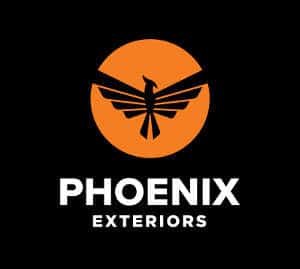
Regional Service
Average cost
Pros
- Offers products from leading manufacturers
- Outstanding customer service
- Comprehensive service offerings
Cons
- No leases or PPAs
- Limited service area
- Limited brands of solar equipment available
Phoenix Exteriors is a small solar installer with an office in New Orleans. It delivers outstanding customer service and personalized solar system design. This is important in an area like Louisiana, where high energy consumption demands a system that is sized appropriately for each home to maximize energy savings and keep installation costs to a minimum.
Phoenix only installs Tesla products. While having just one brand option isn’t ideal, this brand in particular boasts above-average efficiency ratings that should provide enough power to offset the high local energy bills.
Phoenix Exteriors has a limited service area — New Orleans and the surrounding areas only — and doesn’t provide the best warranty coverage. However, we still feel this is a great choice as far as installers go because of the high-efficiency technology and the local experience offered.
Facts and Figures: Phoenix Exteriors
| EcoWatch Rating |
|---|
| Better Business Bureau (BBB) Rating |
| Average Cost ($-$$$$$) |
| Solar Services |
| 4 |
| A+ |
| $$$ |
| Solar Panels, Solar Batteries, Solar Roof Shingles, General Contracting, Roofing Services |
Watch Below: Learn How You Can Profit Off Of the Extra Energy Your Solar Panels Produce
How Can You Save Money When Hiring A Solar Company in Louisiana
The average cost to install solar panels on your Louisiana home is around $29,663 after the ITC. This is slightly higher than the national average, mainly because most houses in the state require larger than average systems.
PV equipment is a touch more expensive in Louisiana than it is in most other states at around $3.39 per watt — compared to the U.S. average of $3.33 per watt. Louisiana residents also use far more electricity than residents of most other states, which means larger and more costly systems are required.4 For most Louisiana residents, you’ll probably want to install as many panels as will safely fit on your roof to make solar worth it in Louisiana.
Luckily, there are a few ways to bring down your effective system costs and push up your long-term savings and return on investment in Louisiana. These include:
- Taking advantage of solar benefit programs
- Choosing a high-efficiency solar panel brand
- Considering installing a solar battery
- Getting multiple solar quotes for your solar system
We’ll explain why these strategies help save money on your solar conversion in the sections below.
Take All the Solar Incentives You Can
One of the best and easiest ways to save money on your solar system and make it more profitable in the long run is to take advantage of solar incentives. Louisiana doesn’t have quite as many incentives as most other states, but the ones that are available can be massively beneficial. We’ll include a brief description of each perk available in Louisana in the table below.
| Solar Benefit Program | Program Description |
| Federal Solar Investment Tax Credit (ITC) | The federal solar tax credit is for 30% of your entire system value, and it’s available to all solar customers in any state. The credit — which averages out to $12,713 in LA — gets applied to your personal income taxes owed. You can use the entire tax credit at once or rollover any unused credit for up to five years after installation. |
| Solar Energy System Exemption | Your solar system is expected to raise your property value, which would normally bump up your taxes as well. This property tax exemption prevents your taxes from going up after solar installation. |
| Home Energy Loan Program (HELP) | This is a solar financing option that keeps solar conversion accessible to more homeowners. It provides solar loans up to $12,000 and keeps down payment requirements and interest rates low. |
| New Orleans Solar for All (NOLA) | This solar program is especially appealing to low-income households. It offers unique financing methods that eliminate the need for down payments on the system, which makes renewable energy far more accessible overall. As the name implies, this program is only available in New Orleans. |
You can get more information on these perks and other benefit programs available in your area by checking out our complete guide to rebates and incentives for solar systems in Louisiana.
Choose a Highly Efficient Panel Brand
In Louisiana, efficiency is the name of the game. As mentioned, Louisiana households require far more electricity than homes in other states. This is because the houses are old, and energy has historically been quite cheap (but not anymore). Older homes also tend to have smaller roofs, and won’t fit as many panels. Therefore, the panels you do install need to be highly efficient.
Consider Installing a Solar Battery
Solar batteries — like Tesla Powerwalls — add thousands of dollars to your installation costs in most cases, but they can provide far more energy savings than the upfront cost over time. This is true more so in Louisiana than in other states, as the energy needs in the area are high, the net metering policies are poor and extended power outages are unfortunately quite common.
Solar storage solutions effectively let you take advantage of NEM on a personal level. You can overproduce with your system and store the excess. You can then call on that excess rather than paying for electricity pulled from the electric grid.
Solar batteries also provide power through blackouts, which adds value to your energy storage solutions. Louisianians see more power outages than residents in nearly every other state.5 Batteries can, therefore, provide higher energy savings and also personal safety and peace of mind.
Get Multiple Quotes for Your System
Finally, we suggest you reach out to a few companies to get quotes for your solar electric system. There are around 30 installers available in the Pelican State, and each one will likely provide a unique price quote. Differences in labor costs and equipment charges can lead to total differences in the thousands in some cases.
We suggest getting at least three free quotes and comparing them based on the price, the timeline for installation and the overall value provided.
Pro tip: if there’s a company you prefer but it offers a slightly higher estimate than its competitors, see if it will drop its estimate to match the other quotes you’ve been offered. Remember, these companies are competing for your business, not the other way around.
See Also: Calculate How Much You Can Save By Going Solar
Will Solar Increase Your Home Value In Louisiana?
Yes, absolutely! Outfitting your home with a solar energy system is expected to raise your property value by approximately 4.1%, according to research done by Zillow.6 With an average home value of around $195,356 in Louisiana, you can expect a value increase of about $8,009 as a result of converting to clean energy.7
The value bump you see from your PV system is likely to be more significant in areas where solar is more widely accepted.
For example, several southeastern cities are adopting and welcoming community solar farms.8 This is a good sign for the local solar industry in these areas, which means your solar array will provide more value as well. The cities that we expect to see the most value include:
- New Orleans
- Baton Rouge
- Covington
- Hammond
- Metairie
- And the surrounding cities
As you can see in our company picks above, some solar installers have settled in New Orleans, Covington and Metairie as well, which is a good sign that solar will be more widely accepted and, therefore, valuable there.
Should Louisiana Residents Hire a Professional Solar Installer Or DIY?
Paying a professional installation company to install your solar array is expensive in any state, usually somewhere on the order of $30,000. In comparison, installing a solar system yourself — which averages around $15,000 in Louisiana — is much more reasonable and seems like a great financial decision.
Unfortunately, there are some pretty significant downsides to consider before diving into a DIY solar panel installation. These include:
- The lack of a workmanship warranty
- Lower panel efficiency
- A higher risk of property damage from a DIY installation
We’ll explain in the sections below why we believe these drawbacks make paying double the cost for a professional well worth it and a better choice overall for Louisianans.
DIY Systems Don’t Come With a Workmanship Warranty
As we mentioned above, a solid and lengthy workmanship warranty is worth just about any price in Louisiana. Not only does the extreme weather that frequents the area put improperly installed panels at risk of damage, but the above-average annual rainfall means roof leaks are far more common with systems that aren’t installed the right way.
You might pay twice as much to have an expert install your panels, but you could save money over time by avoiding costly property or system damage that isn’t covered by a warranty.
DIY Panel Brands Don’t Produce As Much Energy
Second, professionally-installed panels — like SunPower, Tesla, REC, Qcells and Panasonic — all have efficiency ratings over 20%, and some even top 22%. DIY panel brands — like Grape Solar, Renogy and WindyNation — usually have efficiency ratings between 15% and 18%. This might not seem like much, but it means significantly less power production.
Maximizing energy generation with your panels will always translate to greater energy-saving capability. This is especially the case in Louisiana, where monthly energy consumption is around 135% of the national average. The more efficient your panels are, the more you’ll save over time, and the more valuable your panels will prove to be.
You’ll spend less on DIY panel brands, but their lower efficiency and less appealing production guarantees could very well lead to fewer savings and a lower return on investment over time.
DIY Installations Are More Likely to Result in Issues Down the Road
Finally, even experienced DIYers are more likely to make mistakes during the installation process. Installing solar panels properly is crucial to protecting your roof from leaks, especially in LA, where rainfall is nearly double the national average.
You stand to save around $15,000 by installing your panels yourself. However, you don’t get the same peace of mind you would with a professional installation. Plus, any mistakes you make could lead to costly roof replacement and water damage, which can easily offset those savings.
What Should Louisiana Residents Look For in a Solar Installer?
Choosing a single installer out of the 30 that are available in your area can seem like an intimidating process, but there are a few characteristics you can look for to narrow your search. Below is a list of the qualities we recommend prioritizing to find a reliable installer that can meet your needs. We’ll explain these in greater depth in the sections that follow as well.
- Lengthy workmanship warranty
- Access to solar batteries
- Access to high-quality, high-efficiency panel brands
Lengthy Workmanship Warranty
The number one thing we suggest looking for is a solar installer with a robust warranty for workmanship. A labor guarantee is helpful no matter where you live, but it can provide the peace of mind you need in Louisiana, in particular.
Louisiana residents see intense rainfall and severe weather that naturally puts arrays installed with shoddy workmanship at risk of damage. A long workmanship warranty helps protect you against issues that lead to property or system damage.
Solar Battery Installations
Next, we recommend choosing a company that includes access to solar batteries. Louisianians don’t always have access to net metering, so any excess energy your panels generate will often be forfeited to the grid. You’ll then be forced to pay the retail rate for the electricity you pull from the grid when your panels don’t produce — like at night or on cloudy days.
Choosing a company that offers solar batteries means you can effectively set up net energy metering for yourself — not to mention protection from costly outages. Batteries are expensive, but given the high energy demands in the area, opting for a battery is often worthwhile.
High-Efficiency Panel Brands
Finally, we strongly recommend choosing an installer that provides access to durable, high-efficiency panel brands. Since energy consumption is higher in Louisiana than in any other state, high-efficiency panels can help limit the number of panels you need — and, therefore, the system cost — and maximize your energy savings over time.
Methodology: How We Ranked Louisiana’s Solar Companies
Our goal is to provide you with all the information you need to make an informed decision and choose the best solar installer for your purposes. To reach that goal, we carefully assess solar providers based on the criteria that we believe are most important to you as a Louisiana property owner. Below is a quick look at the weighted criteria we use for solar companies in the state:
- Solar Warranty & Customer Support (20%)
- Solar Services (20%)
- Price & Payment Options (20%)
- Qualifications, Reputation & Certifications (10%)
- Experience (10%)
- Availability (10%)
- Environmental, Social and Corporate Governance Factors (10%)
We also never let commercial partnerships affect our methodology, so you can always be confident that our recommendations are genuine and unbiased. We’ll explain why we use these criteria in the sections below.
Solar Warranty & Customer Support
The first thing we look for in a solar provider in Louisiana is warranty coverage. Specifically, we prioritize companies that have a lengthy workmanship warranty — to stand up to excessive rainfall and extreme weather — and production guarantees — to maximize energy savings, given the above-average consumption rate in the area.
We use the industry standards below to rank companies as average, and lengthier warranty coverage means above-average ratings in this category:
- 25 years of coverage for the equipment
- 20 to 25 years of coverage for the panel efficiency and degradation
- 10 years of coverage for the labor
Solar Services
Next, we prioritize installers that offer installation services for panels and batteries and offer energy audits, as these are the standard services. Batteries are especially important in Louisiana, given the frequency of extended power outages.
Companies that provide services above and beyond these three get ranked higher, as they will be able to meet the needs of more of our readers.
Price & Payment Options
Since solar energy systems in Louisiana tend to be larger and more expensive than the national average, we rank companies high if they provide below-average or at least average pricing to remain competitive. We also prioritize installers who accept a multitude of payment options, like cash, loans, leases and PPAs. These help keep solar solutions more accessible.
Qualifications, Reputation & Certifications
Next, we look for companies that are equipped to provide outstanding installation service and are more qualified than other local installers. Below are some of the things we look for to confirm a company’s qualifications and positive reputation in the industry:
- NABCEP certification (North American Board of Certified Energy Practitioners)
- 100 or more 4-star customer reviews on Google
- A+ rating with the BBB and a low number of unresolved complaints
- Certification from the Leaders in Energy and Environmental Design (LEED)
- Certification with the Building Performance Institute (BPI)
Experience in Louisiana
Since Louisianians have above-average energy needs and see some extreme weather that can threaten rooftop solar power systems, we next look for companies that have experience in the industry and local climate, specifically.
More experienced companies are more often able to judge system capacity needs more accurately and provide professional installations that stand up to the weather patterns in the area.
Companies that have at least five years of experience in the industry get an average score here, while companies with ten or more years get a perfect score.
Availability
Since the demand for solar in Louisiana is lower than in many other states, some companies offer installations just to specific major cities to minimize travel time and maximize profit. Phoenix Exteriors — which only serves New Orleans — is a good example.
Since companies that provide installations throughout the state will appeal to more customers, we rank those higher.
Environmental, Social & Corporate Governance Factors
Finally, we care about a solar provider’s impact on the environment, the clean energy industry as a whole and the communities they serve. As such, we look for installers that:
- Address solar panel recycling
- Carry out sustainable business practices
- Make charitable donations
- Keep prices affordable for low-income individuals
The cost information presented in this article is derived from a comprehensive analysis, incorporating data from multiple industry sources. The average cost per watt per state was calculated based on figures from Consumer Affairs, Energy Sage, and Berkeley Lab’s Electricity Markets & Policy Department. Additionally, monthly energy consumption and the average monthly cost of electricity were sourced from the U.S. Energy Information Administration, ensuring a well-rounded and accurate representation of the information presented.
FAQ: Best Solar Companies in Louisiana
Louisiana is on the brink of becoming a major solar hub, so we get tons of questions about how to choose the ideal installer from residents like you. We’ll answer some of the questions we see most frequently in the sections below.
Based on our reviews of the top companies in Louisiana, we have determined that Solar Alternatives is the best all-around and most reputable solar installer in the Pelican State.
Solar Alternatives is a growing regional company that has an unblemished record of outstanding service and workmanship. Most Louisiana property owners who go with this company are overwhelmingly pleased and find solace in the technicians’ willingness to help and assist throughout the entire process. The company also understands the big picture when it comes to solar and provides a number of services and products that can improve the energy efficiency of your home as opposed to maximizing panel installation.
According to the Solar Energy Industries Association (SEIA), there are 70 solar companies in Louisiana. Of these 70, there are only 35 that provide home solar installation.9
Given the amount of precipitation Louisianians experience, especially during the wet season, we get many residents asking if solar panels work when it’s raining. Solar panels do produce energy on cloudy days and when it’s raining, but the production levels will be much lower than they will on sunny days. For this reason, many Louisiana property owners choose high-efficiency panels with a good warranty for energy production.
Finding the most affordable solar installer in Louisiana might seem trivial, but it will involve some leg work on your part. Since the cost of going with a particular company can vary based on everything from equipment and services provided to financing options, you’ll have to get personalized quotes from the top companies in the state and compare them.
Alternatively, you can use our EcoWatch rating to find the best value service and equipment that fits within your budget, and then get a free quote from that provider.
Top Solar Installers in Louisiana Cities
Comparing authorized solar partners
-
- Great warranty coverage
- Outstanding customer service
- Multitude of products and services
- No leases or PPAs
A+Solar Veteran
Having trouble deciding? Click below and use our process to receive multiple quotes instead:

 233k
233k  41k
41k  Subscribe
Subscribe 
